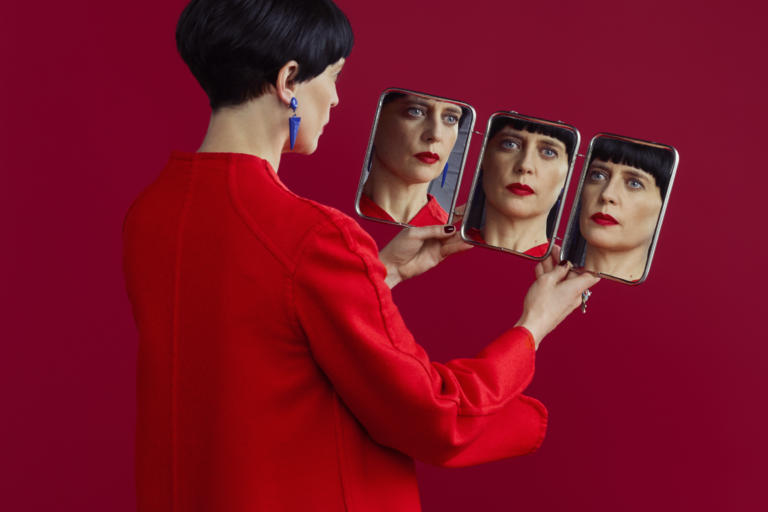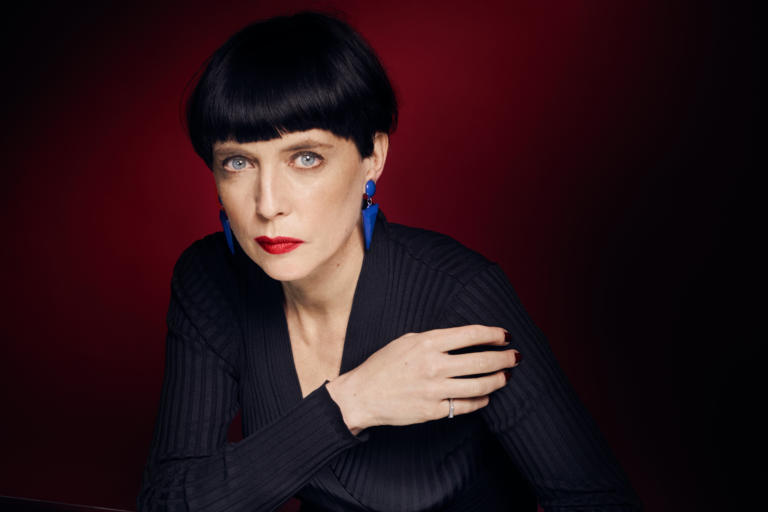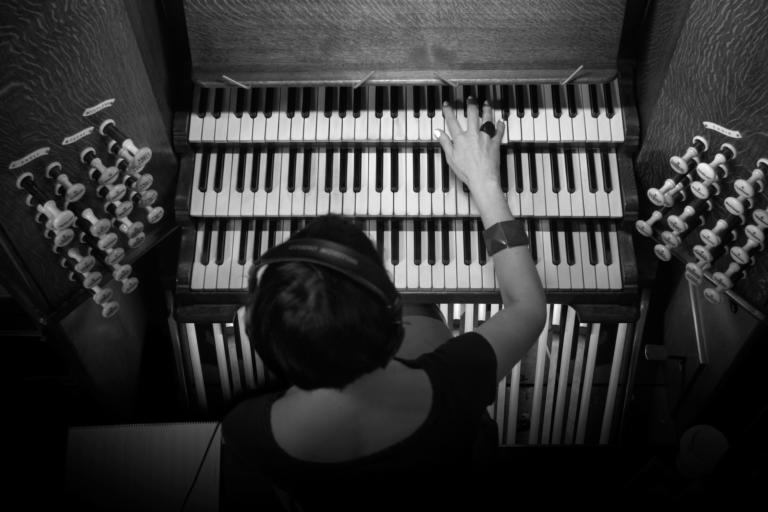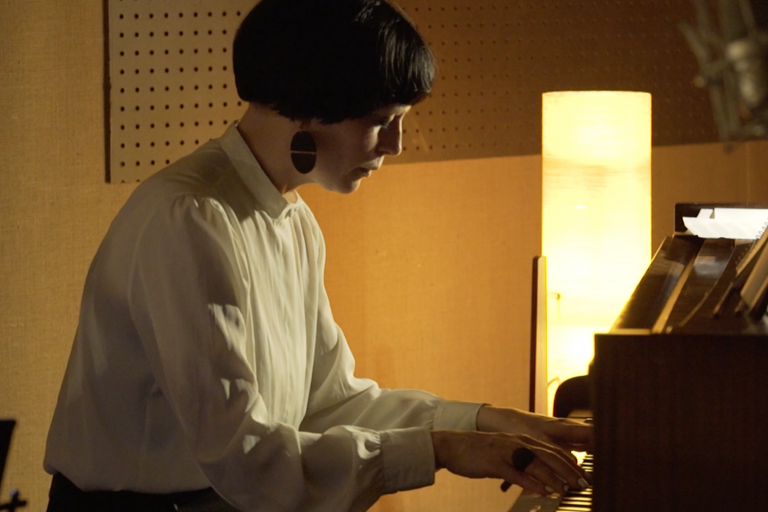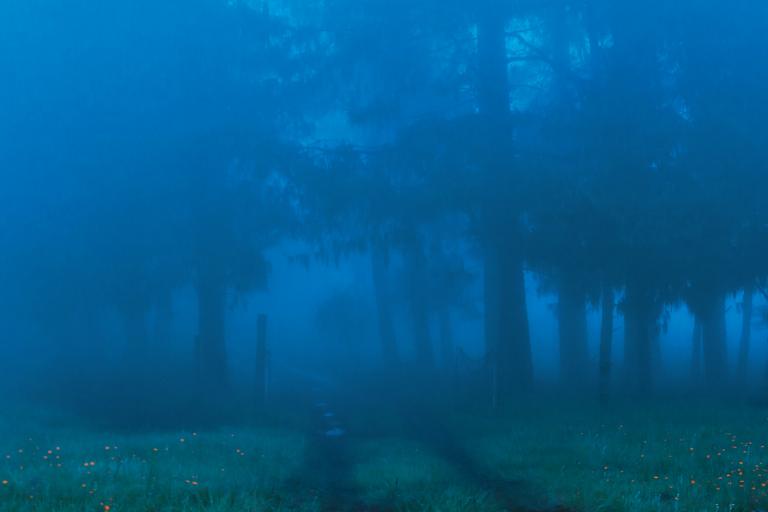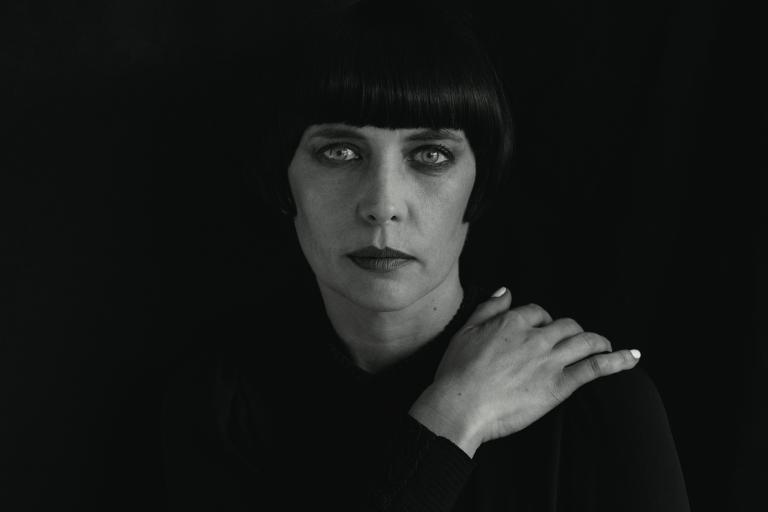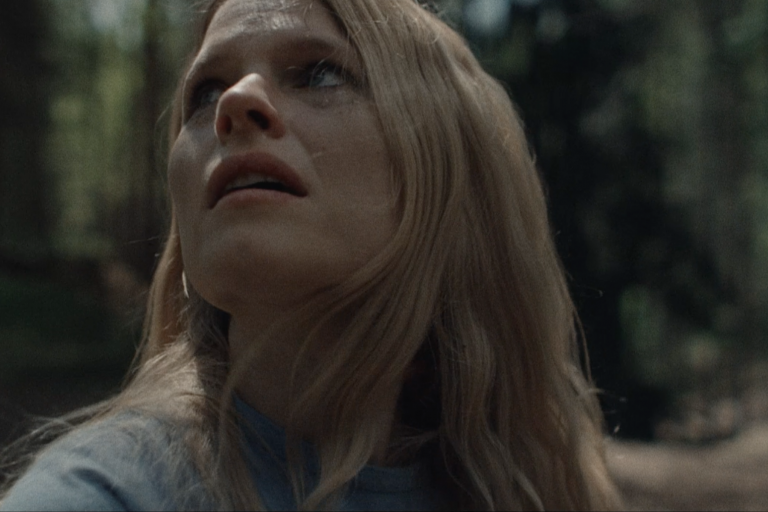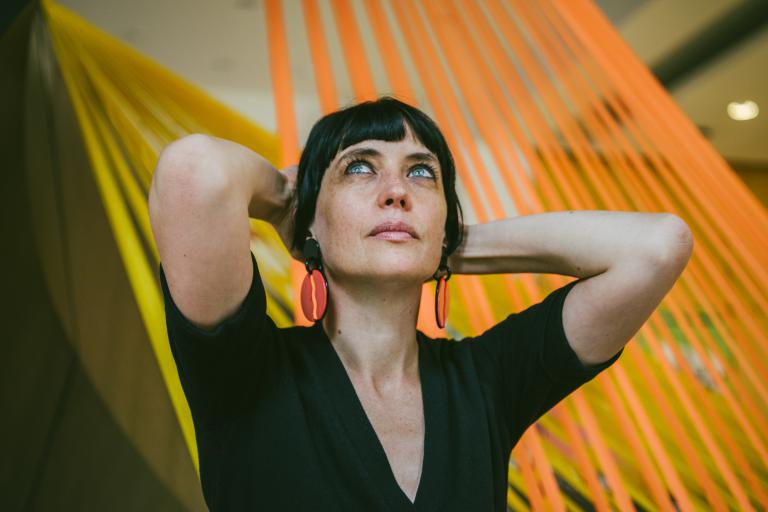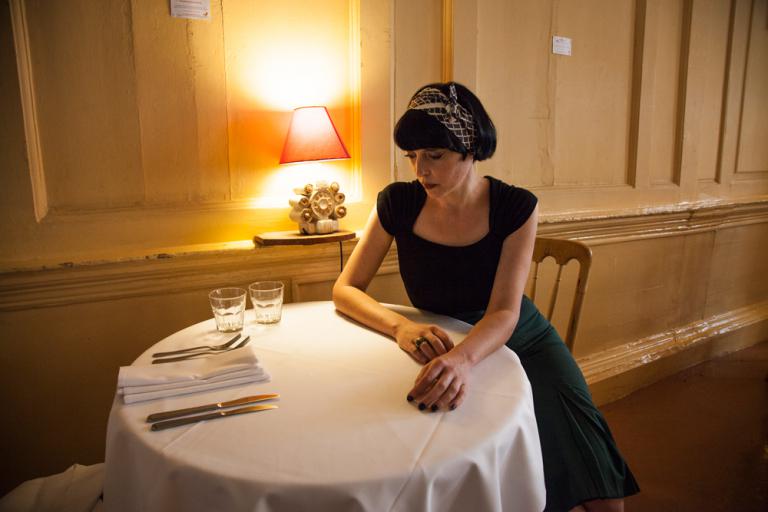Angèle David-Guillou
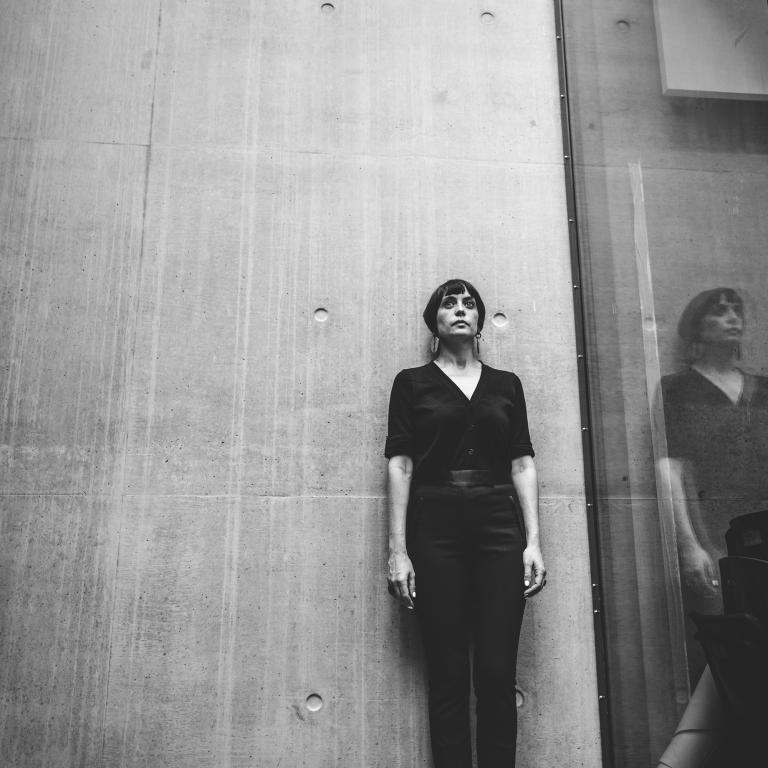
French composer, musician and producer Angèle David-Guillou compares her distinctive contemporary compositions to scripts, where flow and clarity appear natural but are designed and chosen with precision and intent. Her music explores concepts around movement, reflection, illusion, and the manipulations of sonic realisms, with acute attention to detail in the characters of her rich instrumental architecture.
She has released three full-length albums and two EPs on Village Green. The recently released ‘A Question of Angles’ was preceded by the lockdown EP ‘Sans Mouvement’, which was recorded on the organ at the Union Chapel in London. Prior to this, 2017's full length ‘En Mouvement’ took cues from a broad range of influences, including the films of Tarkovsky, Sumerian dance, and Philip Glass's Glassworks, to explore how transformation could be achieved through repetition. A partner EP also released in 2017, ‘Mouvements Organiques’ experimented with these compositions, reworking them for organ. Her first album under her own name, ‘Kourouma’, was released in 2013, inspired byFrench melodie compositions and the flamboyant arrangements of European and Latin American Baroque music.
Prior to this David-Guillou also recorded as Klima and has played in various groups including as vocalist and songwriter in the UK post-rock band Piano Magic. She has toured internationally and has worked on a number of collaborations with an eclectic array of musicians, including The Go! Team, Pete Astor and Mark Fry among others. Her first instrument is the piano, although she also sings and plays several other instruments. David-Guillou describes having "a sort of double musical education", playing classically as a child, before moving into experimental rock music and performance, and is now fully engaged in instrumental composition and production under her own name. Her broad range of experiences allows her to pull together the nuance and expressive qualities of orchestral instruments with a sense of the urgency and lyrical potency of song writing.
David-Guillou produces her own music, which she describes as an integral part of her creative process. "Production can add another layer of realism or surrealism," she explains. Her production is about drawing out the unique characters of each of the instruments she uses, retaining details like the sound of a foot on a piano pedal, or pushing instruments outside their traditional range to draw out details such as the brittle edges of brass notes.
Her experience as a singer also means she listens to the voice in each instrument she composes for. As such, David-Guillou’s approach to composition is to write scores as if they are script, to direct instruments like actors with character and personalities, and to transpose the precise irregularities and rhythms of lyrical scripts into compositional frameworks. "The score looks complicated but I'm not doing it to be clever, I want the phrase finish, or start, or repeat, to let the instruments speak." She thinks in terms of unfinished sentences, false starts and repetition, using time signatures and other devices inspired by baroque music to make the instruments and ensembles she works with dance. "I approach instruments lyrically, thinking about the meaning of what's being said," she explains. "I need to hear an instrument speaking. I'm always thinking about this as I write music."
Core to her sound is the rhythm of her compositions. "I need to be able to dance to all my music," says Angèle. She has been deeply influenced by the baroque music she has loved since she was a child, particularly early music written for dancers, the complex patterns of interlocking meters. "I need rhythm, but a rhythm that feels unsettled, even if you don't always notice immediately" she says. "Ultimately, I want my music to be saying something."
Releases
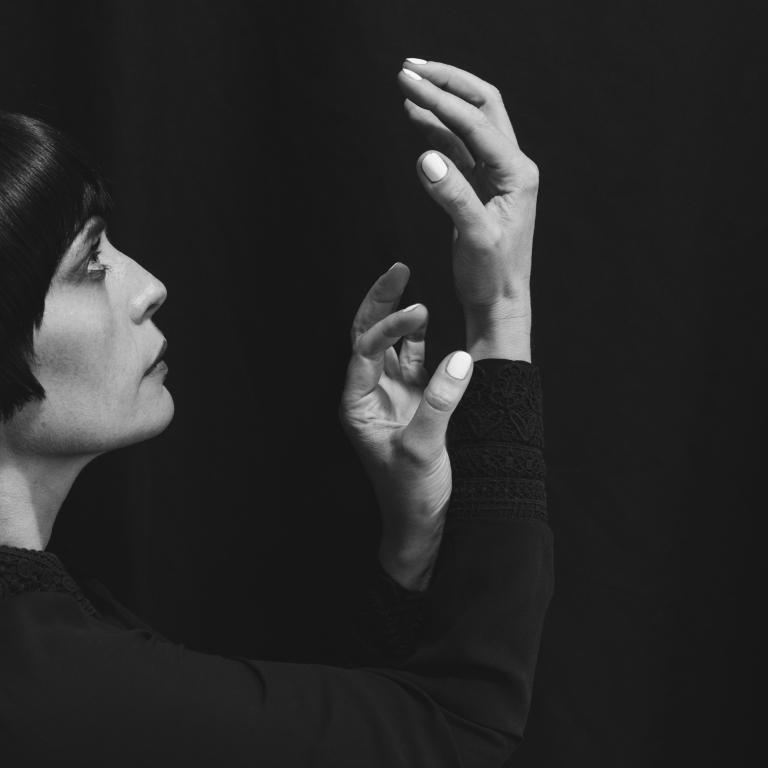
Mouvements Organiques
Angèle David-Guillou
LP, CD, Digital
Angèle David-Guillou has reworked for organ a selection of tracks from her mesmerising sophomore album, En Mouvement.
Titled Mouvements Organiques, these five pieces echo the ideas and motifs of its counterpart. Yet, where En Mouvement is often busy with the interlocking melodies and shifting rhythms that define its character, Mouvements Organiques pares the music down to its essential qualities.
‘Vraisemblance’ has been transformed into three sprawling ambient pieces, ‘Mouvements Organiques’, parts I, II and III, drawing out its harmonic movement and expanding it almost beyond recognition. ‘En Mouvement’ and ‘Respiro’, meanwhile, retain much of their identity, yet take on new, restored forms in the hands of Angèle.
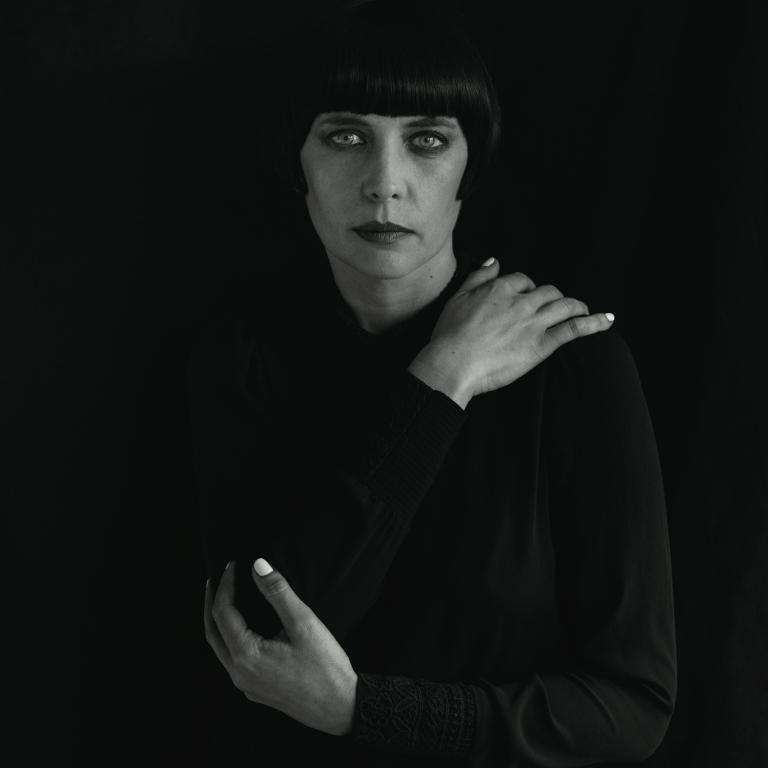
En Mouvement
Angèle David-Guillou
LP, CD, DL
Informed by a rich and eclectic tapestry of cultural stimuli, including Philip Glass’s ‘Glassworks,’ the music for movement of Thomas De Hartmann and George Ivanovich Gurdjieff, Alvin Curran's compositions for the piano, French and Spanish Baroque music, the films of Andrei Tarkovsky and Jean Cocteau, Sufi writings, Sumerian art and contemporary dance, the pieces on ‘En Mouvement’ are the work of a reflective, intellectually engaged yet delightfully instinctive modern composer who has made the limitless mutability implied by the concept of ‘movement’ a thing of personal transformation and mesmeric musicality.
With her second album of modern composition, Angèle David-Guillou’s career is palpably en movement, and, excitingly, it feels like the beginning of a long and thrillingly creative musical journey.
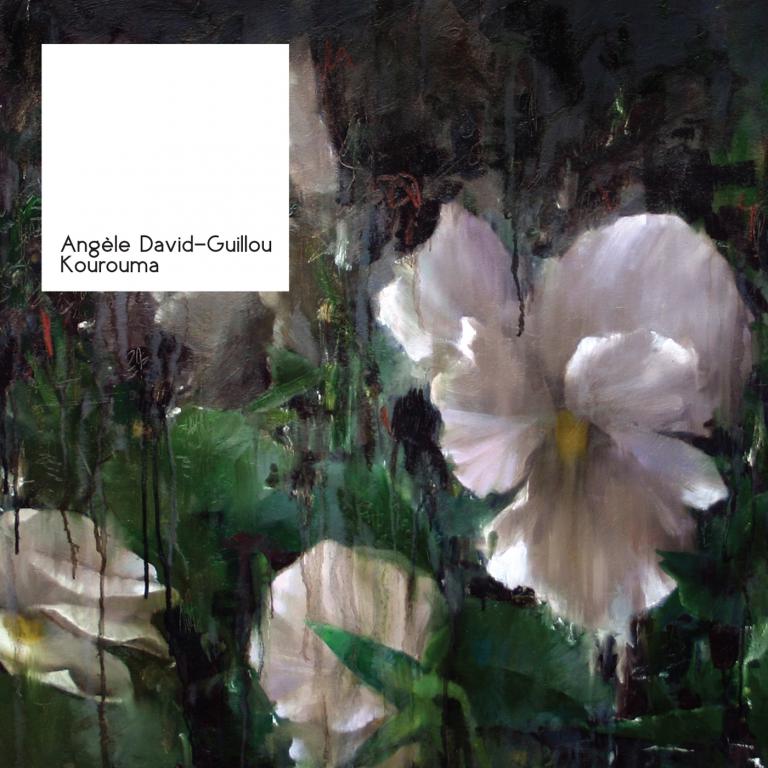
Kourouma
Angèle David-Guillou
CD, LP, DL
Angèle's debut album under her given name is a largely instrumental work, predominantly consisting of melodically opulent, emotionally compelling compositions for the grand piano (and, on three songs, a Wurlitzer electric piano), many of them emblazoned with vivid arrangements for strings, woodwind, musical saw and percussion. The album is named in tribute to feted Ivorian novelist Ahmadou Kourouma, and many of its dozen, exquisitely realised essays are inspired as much by literature, both European and African, as they are by musical precedents. While nodding, melodically and thematically, to the work of Anna Marly (Russian-born French composer of 'Le Partisan', as famously covered by Leonard Cohen), the hauntingly poignant title track.
News View All >
Out Now, Angèle David-Guillou - 'A Question of Angles'
20.11.20
The artist drops her most ambitious recording to date
